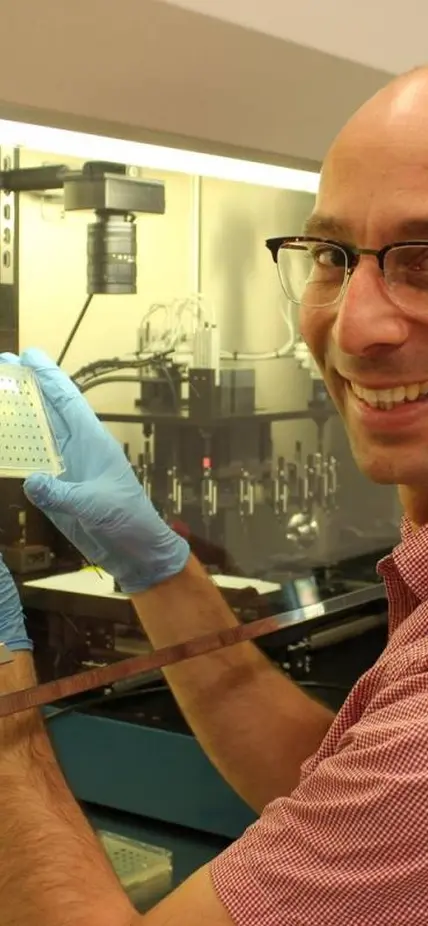Palo Alto, CA—Former Carnegie Staff Associate Martin Jonikas, now an Associate Professor of Molecular Biology at Princeton University, was named one of 33 new Howard Hughes Medical Institute (HHMI) Investigators. HHMI recognized Jonikas for his research on photosynthetic algae, which could revolutionize agriculture and biofuels by making crop plants better at converting carbon dioxide from the atmosphere into usable energy sources such as sugars.
Each member of the cohort will receive roughly $9 million over a seven-year term. They were selected for “diving deep into tough questions that span the landscape of biology and medicine.”
Photosynthesis is the process by which plant cells convert the Sun’s energy into chemical energy, which then is used to fix atmospheric carbon dioxide into sugar molecules.
However, green algae are much more efficient than higher plants in this process, because they have a special cellular compartment called the pyrenoid, which they use to collect and concentrate carbon dioxide around the protein, called Rubisco, responsible for capturing it. This allows Rubisco to work at a faster rate.
Jonikas and his lab members are working to elucidate the molecular structure and operation of this organelle and to engineer it in crop plants, which they say could make a major impact on both climate change, by improving carbon sequestration, and world hunger, by improving crop yields.
Jonikas started this work during his time at Carnegie and has continued to advance it at record pace since joining the faculty at Princeton. While at Carnegie, Jonikas also created a large library of algal mutants in which tens of thousands of genes are individually disrupted—an important resource for the broad research community.
“I feel extremely fortunate for this recognition from HHMI,” Jonikas said. “This would not have been possible without the nurturing environment and all of the help and support from colleagues at Carnegie when we were getting started on this research effort.”
The Carnegie Staff Associate program, of which Jonikas was a member between 2010 and 2016, was one of the first of many limited-term, early career initiatives around the country that were designed to give young scientists the freedom and independence to pursue bold, often unconventional, research. It was first created by former-Department of Embryology Director Don Brown and adapted by the Department of Plant Biology, where Jonikas worked.
“Carnegie’s Staff Associate program is a great launchpad for early career scientists who have demonstrated a great deal of research talent and are ready to take a run at developing independent research programs shortly after getting their doctorates,” said Acting Plant Biology Director Zhiyong Wang. “Martin is a model success story from the program and this recognition is well deserved. Congratulations to him!”
